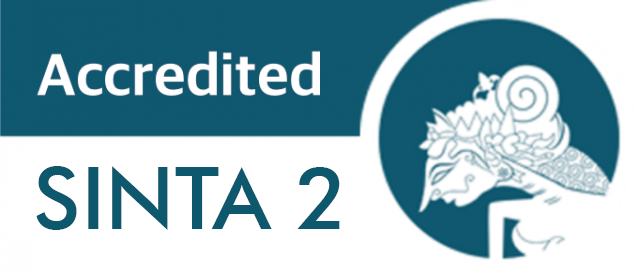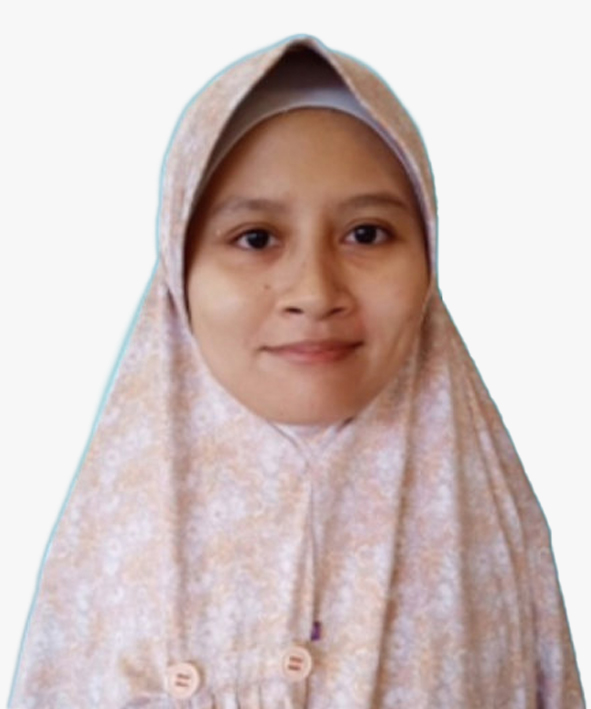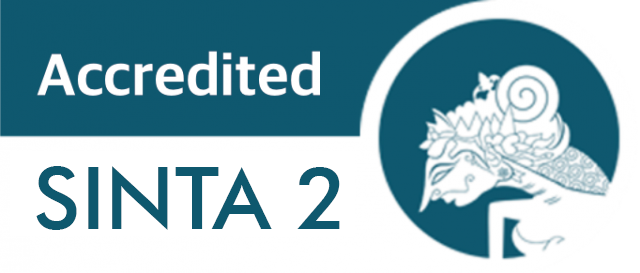Hubungan Antara Pola Asuh dan Depresi pada Remaja Overweight-Obese
Downloads
Latar belakang: Gangguan depresi merupakan penyebab ketiga utama mortalitas pada remaja. Prevalensi gangguan depresi pada remaja diperkirakan 6 hingga 20%, dengan angka rekuren 60 sampai 80% di akhir masa remaja. Selain faktor genetik, biologik dan lingkungan sosial, faktor keluarga dalam hal ini pola asuh menjadi faktor yang mempengaruhi terjadinya gangguan depresi pada remaja. Beberapa penelitian melaporkan tingginya gangguan psikiatri pada anak dan remaja yang mengalami overweight-obesitas. Kerentanan depresi yang terjadi pada remaja, terlebih pada remaja yang overweight-obesitas, membuat peneliti menjadikan topik ini sebagai bahasan penelitian dihubungkan dengan tipe pola asuh yang diterima oleh remaja tersebut dari orang tuanya.
Tujuan penelitian: Mengetahui prevalensi masing-masing tipe pola asuh dan menganalisis hubungan antara pola asuh dan depresi pada remaja overweight-obese di salah satu SMA swasta Surabaya.
Metode penelitian: Penelitian ini merupakan penelitian analitik observasional dengan bentuk cross sectional terhadap remaja overweight-obese di salah satu SMA swasta di Surabaya dan menggunakan metode analisis statistik korelasional. Tehnik pengambilan sampel secara simple random sampling. Instrumen penelitian menggunakan Indeks Massa Tubuh (IMT), Children Depression Inventory (CDI) dan Parental Authority Questionairre (PAQ).
Hasil: Didapatkan 133 responden yang memenuhi kriteria inklusi. Berdasarkan karakteristik responden menurut kategori Indeks Massa Tubuh (IMT), didapatkan bahwa kategori overweight sebesar 105 responden (78,9%) dan kategori obesitas sebesar 28 responden (21,1%). Berdasarkan kategori skor Children Depression Inventory (CDI), didapatkan 107 responden (80,5%) dengan skor CDI 0-12 yang berarti tidak didapatkan gejala depresi dan 26 responden (19,5%) dengan skor CDI >12 yang berarti didapatkan gejala depresi. Uji analisis korelasi tidak didapatkan hubungan antara pola asuh ayah dan depresi pada remaja overweight-obese dengan nilai p=0,265 juga tidak didapatkan hubungan antara pola asuh ibu dan depresi pada remaja overweight-obese di salah satu SMA swasta Surabaya, dengan nilai p = 0,119.
Simpulan: Didapatkan prevalensi tipe pola asuh ayah : otoritatif/demokratis 55,6%, otoriter 11,3%, permisif 12,0%, demokratis dan otoriter 3,0%, demokratis dan permisif 5,3%, otoriter dan permisif 2,3% serta demokratis dan otoriter dan permisif 10,5%. Untuk prevalensi tipe pola asuh ibu : otoritatif/demokratis 63,2%, otoriter 9,0%, permisif 10,5%, kombinasi demokratis dan otoriter 0,8%, demokratis dan permisif 3,0%, otoriter dan permisif 0% serta demokratis dan otoriter dan permisif 13,5%. Tidak didapatkan hubungan antara pola asuh dan depresi pada remaja overweight-obese.
NIHCM Foundation Issue Brief ,2010. Improving Early Identification & Treatment of Adolescent Depression: Considerations & Strategie s for Health Plans. NIHCM Foundation.
Castro J, 2011. Depression in Children and Adolescents. Division of Medical Services, Arkansas Department of Human Services.
Scott S. 2008. Parenting Programs in Rutter's Child and Adolescent Psychiatry 5th Edition, Rutter M., Bishop D.V.M., Pine D.S., Scott S., Stevenson J., Taylor E., and Thapar A.,editors. Blackwell Publishing Limited, Malden, Massachusetts, pp 1046-61.
Irfan U. (2011). Impact of the Parenting Styles upon Upon Psychological Well-being of Young Adults. The Romanian Journal of Psychology, Psychotherapy and Neuroscience, 1(1), 51-62. www.irscpublishing.com June, 2011.
Rima S. 2002. What Kids Need : Today's Best Ideas for Nurturing, Teaching, and ProtectingYoung Children, A Carnegie corporation initiative, Beacon press, Boston.
Baumrind, D. (1971). Current patterns of parental authority. Developmental PsychologyMonographs, 4 (1, Part 2).
Dewar G. 2009. Parenting styles: A guide for the science-minded. www.parentingscience.com, diunduh pada 27-09-2011.
Rothrauff, T.C., Cooney, T.M., & An, J.S. 2009. Remembered Parenting Styles and Adjustment in Middle and Late Adulthood. Journal of Gerontology: Social Sciences, 64B(1), 137–146.
Coomarsingh K, 2012. Parenting and Depression among Children/Adolescents: A Brief Literature Review.
Paˇrízková, J & Hills, AP 2005, ‘Psychosocial aspects of obesity', in Childhood obesity: prevention and treatment, 2nd ed., CRC Press Boca Raton, Florida, pp.229-244.
Calamaro, CJ & Waite, R 2009, ‘Depression and obesity in adolescents: what can primary providers do?', The journal for nurse practitioners, vol.10, pp.255-261.
Buri, J. (1991). Parental Authority Questionnaire. Journal of Personality Assessment, 57(1), 110-119.
Onyike, CU, Crum, RM, Lee, HB et al. 2003, ‘Is obesity associated with major depression? Results from the third National Health and Nutrition examination survey', Am J epidemiology, 158:1139-1147, http://aje.oxfordjournals.org.
Sadock, BJ & Sadock VA 2007, ‘Mood disorder and suicide in children and adolescents', in Kaplan & Sadock's Synopsis of Psychiatry: Behavioral Sciences/Clinical Psychiatry, 10th edn, Lippincott Williams & Wilkins, New York, pp.1258-1263.
Rao, V & Chen, LA 2009, ‘Depression in children and adolescents', in Naylor, BT (ed), Depression in children, Nova Science Publishers Inc., New York, p.89-127
Dobson K.S, Dozois D.J.A., 2008, Introduction: Assessing Risk and Resilience Factors in Models of Depression In Risk Factors in Depression, Dobson K.S.& Dozois D.J.A. editors, Elsevier Inc.,USA, p 10.
Angold A. & Costello E.J., 2001, The epidemiology of depression in children and adolescents In The Depressed Child and Adolescent, Goodyer I.M. editor, 2nd ed, Cambridge University Press, New York, pp 143-65.
McCauley E., Pavlidis K. & Kim Kendall K., 2001, Developmental precursors of depression: the child and the social environment In The Depressed Child and Adolescent, Goodyer I.M. editor, 2nd ed, Cambridge University Press, New York, pp 46-68.
Fitriana V. 2010. Gambaran Pola Asuh Keluarga Pada Pasien Skizofrenia Paranoid (Studi Retrospektif) DI RSJD Surakarta, SKRIPSI Jurusan Keperawatan Fakultas Ilmu Kesehatan Universitas Muhammadiyah Surakarta.
Essau C.A. & Sasagawa S.,2008, Parental Psychopathology and Parenting Style Attachment as Risk Factors of Depression In Risk Factors in Depression, Dobson K.S.& Dozois D.J.A. editors, Elsevier Inc.,USA.
Ribeiro L.L. 2009. Construction and Validation of a four Parenting Styles Scale. Thesis in partial fulfillment of the requirements for the degree Master of Arts in Psychology. The Faculty of Humboldt State University.
Alloy L.B, Lyn Y. Abramson L.Y., Keyser J., Rachel K. Gerstein R.K., & Sylvia L.G. , 2008, Negative Cognitive Syle In Risk Factors in Depression, Dobson K.S.& Dozois D.J.A. editors, Elsevier Inc.,USA, p 250.
McCauley E., Pavlidis K. & Kim Kendall K., 2001, Developmental precursors of depression: the child and the social environment In The Depressed Child and Adolescent, Goodyer I.M. editor, 2nd ed, Cambridge University Press, New York, pp 46-68
Sjöberg, RL, Nilsson, KW, Leppert, J 2005, ‘Obesity, shame and depression in school-aged children: A population-based study, Journal of the American academy of pediatrics, vol. 116, p.389-392, http://www.pediatrics.org.
Copyright (c) 2019 Royke Tony Kalalo, Lestari Basoeki, Windhu Purnomo

This work is licensed under a Creative Commons Attribution-ShareAlike 4.0 International License.
1. Copyright of this journal is possession of the Author, by the knowledge of the Editorial Board and Journal Manager, while the moral right of the publication belongs to the author.
2. The journal allows the author(s) to retain publishing rights without restrictions.
3. The articles are published under a Creative Commons Attribution Share-Alike (CC BY-SA) license. Many research funding bodies prefer the CC BY-SA license because it allows for maximum dissemination and re-use of open access materials. Users are free to share (copy, distribute, and transmit) and remix (adapt) the contribution under this license, including for commercial purposes, as long as they attribute the contribution in the manner specified by the author or licensor.




























